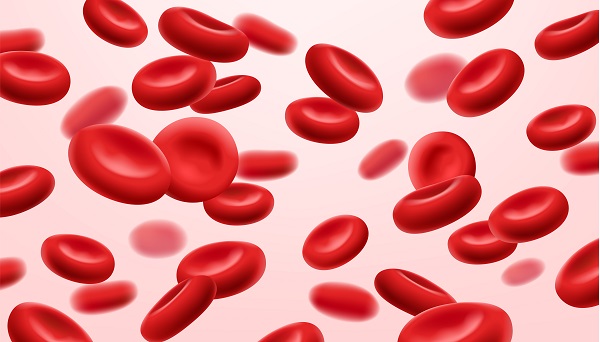Ask an Oncologist: What You Should Know About Anemia

Anemia is a health issue that is caused by not having enough healthy red blood cells to deliver oxygen to tissues in the body. People with the condition often report feeling weak and tired. Anemia can be a short- or long-term health issue, and its severity varies from mild to severe.
Some of the most common types of anemia include:
- Iron deficiency anemia: This is caused by a person not having enough iron molecules in their body. This hinders the production of red blood cells in the bone marrow since it needs iron to make hemoglobin. Pregnant women are more likely to develop this type of anemia
- Vitamin deficiency anemia: This occurs when a person is not getting enough essential vitamins like vitamin B-12 and folic acid. The lack of essential nutrients slows down the production of red blood cells
- Sickle cell anemia: This condition is often inherited. It is caused by defective red blood cells with a sickle shape. These deformed cells have a shorter lifespan than healthy red blood cells, leading to a chronic shortage
- Aplastic anemia: This is a life-threatening form of anemia that is caused by various things like infection, exposure to toxic chemicals, or autoimmune disorders
Everything you should know about anemia
The symptoms of anemia vary based on the type of anemia a person has. Some of the more general symptoms of anemia include:
- Weakness
- Fatigue
- Chest pain
- Cold hands and feet
- Irregular heartbeat
- Pale skin
- Headaches
- Shortness of breath
People with mild cases of anemia often do not notice any symptoms, but that gradually changes as the condition worsens.
Diagnosing anemia
Diagnosing anemia starts with the doctor talking to the patient about their family and medical history. A physical examination is also performed to rule out the possibility of the patient’s condition being caused by a physical issue.
The doctor might also perform tests like a complete blood count (CBC). This involves counting the number of red blood cells in a sample of the patient’s blood and assessing their hemoglobin levels. If the doctor suspects the patient might be anemic, additional tests might be ordered to confirm the diagnosis.
Treatment
Some of the ways a doctor might go about treating patients with anemia include:
- Supplementation: Anemia caused by iron or vitamin deficiencies can be addressed by supplementing the patient's diet with the missing nutrients
- Addressing underlying issues: If issues like blood loss are causing the patient’s anemia, the doctor will attempt to treat the problem causing it
- Blood transfusions: Aplastic anemia can be fixed by performing blood transfusions to boost the levels of the person’s red blood cells. In some cases, bone marrow transplants might be performed to help increase the production of red blood cells in the patient’s body
Get treatment for anemia
Our oncologist has lots of experience treating patients with anemia, helping them restore their quality of life. Give us a call or visit our Marlton clinic to set up an appointment.
Request an appointment here: https://lindenbergcancer.com or call Lindenberg Cancer & Hematology Center at (856) 475-0876 for an appointment in our Marlton office.
Check out what others are saying about our services on Yelp: Anemia in Marlton, NJ.
Recent Posts
Blood clot disorders include a spectrum of inherited or acquired conditions that disrupt healthy circulation, elevate the risk of blockage, and threaten vital organs. An oncologist frequently monitors patients for clotting complications because cancer, certain chemotherapies, and reduced mobility intensify thrombotic tendencies. Early recognition of warning signs, together with prompt intervention, significantly lowers the possibility…
Lung cancer treatment has advanced significantly in recent years, allowing for more personalized approaches that improve outcomes and reduce unnecessary side effects. Personalized lung cancer treatment plans are developed based on several factors, including the type and stage of cancer, genetic markers, overall health, and the patient's unique response to specific therapies. These tailored strategies…
An ovarian cancer diagnosis can be scary, as this form of cancer often develops without noticeable symptoms in the early stages. As the disease progresses, it can become more difficult to treat, making early awareness important. Knowing the signs, understanding the diagnostic process, and learning about treatment options from an oncologist can offer patients hope…
Gynecological cancer treatments target cancers that affect the female reproductive organs, such as ovarian, uterine, cervical, vaginal, and vulvar cancers. Fortunately, there have been significant medical advances in cancer treatment that have greatly improved patient outcomes, allowing oncologists to adjust therapies to fit each patient's needs and overall health. These targeted treatments work better than…


